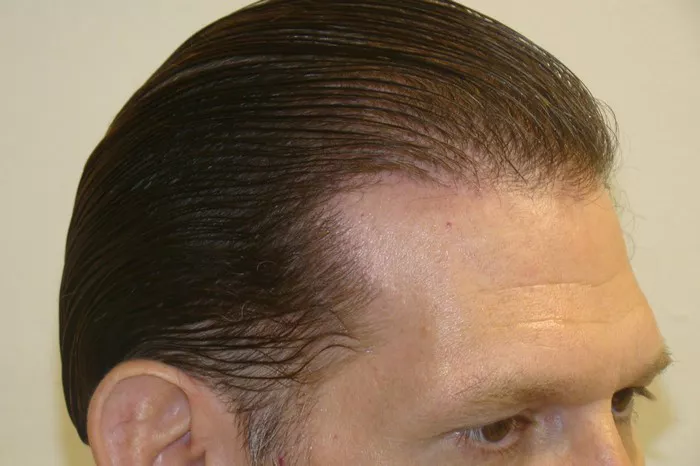Telogen Effluvium is a hair loss condition that can be alarming and distressing for those who experience it. Characterized by excessive hair shedding, it’s essential to recognize the symptoms to address the condition promptly. In this in-depth guide, we will explore the various symptoms of Telogen Effluvium, potential causes, and strategies for managing this temporary hair loss disorder. Let’s dive into the world of Telogen Effluvium and gain a better understanding of its symptoms.
1. Excessive Hair Shedding: The Primary Symptom
The most prominent and telling sign of Telogen Effluvium is excessive hair shedding. This symptom is often the cause of concern for individuals experiencing this condition. Here are a few key points to note about excessive hair shedding:
a. Daily Hair Loss: It is normal to lose 50 to 100 hairs a day. In Telogen Effluvium, you may notice significantly more hair loss during brushing, washing, or styling.
b. Widespread Shedding: Unlike other types of hair loss, Telogen Effluvium often leads to hair loss from all over the scalp, rather than specific bald patches.
c. Temporary Nature: The good news is that Telogen Effluvium is generally temporary. Hair typically starts to grow back within 6 months after the trigger has been addressed.
2. Additional Symptoms of Telogen Effluvium
Here are other symptoms of telogen effluvium:
a. Thinning Hair: As excessive shedding continues, you may notice that your hair appears thinner and lacks the volume it once had. This thinning can be particularly distressing for individuals.
b. Increased Hair Loss During Shower: It’s common for those with Telogen Effluvium to observe a substantial increase in hair loss during showers. This can be a cause for concern but is a typical symptom of the condition.
c. Worsening of Symptoms: In some cases, the symptoms of Telogen Effluvium can worsen over time if the underlying trigger is not addressed. The sooner the cause is identified and treated, the better the chances of recovery.
3. Identifying the Potential Causes of Telogen Effluvium
Understanding the potential causes of Telogen Effluvium is crucial for addressing the condition effectively. Some common triggers include:
a. Physical or Emotional Stress: A sudden and severe physical stressor, such as surgery or a car accident, or emotional stress, such as a death in the family or divorce, can lead to Telogen Effluvium.
b. Nutritional Deficiencies: Inadequate intake of essential nutrients, such as iron, zinc, and biotin, can result in Telogen Effluvium.
c. Medications: Certain medications, including antidepressants, anticoagulants, and retinoids, can trigger Telogen Effluvium as a side effect.
d. Hormonal Changes: Pregnancy, childbirth, menopause, or thyroid disorders can cause hormonal imbalances that result in this condition.
e. Illness or Infection: A severe illness, high fever, or a bacterial or viral infection can disrupt the hair growth cycle and lead to Telogen Effluvium.
4. Strategies for Managing Telogen Effluvium
Here are strategies for managing telogen effluvium:
a. Identify and Address the Trigger: The first step in managing Telogen Effluvium is to identify and address the underlying cause. Consult a healthcare professional to determine the root of the problem.
b. Nutritional Support: Ensure that your diet is rich in essential nutrients, and consider supplements if necessary. Consult a healthcare provider before starting any supplements.
c. Stress Management: Managing stress through relaxation techniques, meditation, or therapy can help alleviate Telogen Effluvium symptoms.
d. Medication Adjustment: If medication is the suspected cause, consult with your healthcare provider to explore alternative options or adjust your dosage.
e. Patience and Time: Understand that Telogen Effluvium is a temporary condition. With the right approach and patience, your hair is likely to recover over time.
5. When to Seek Professional Help
While Telogen Effluvium is typically a self-limiting condition, it’s important to know when to seek professional help. Consult a healthcare provider if:
a. Your symptoms worsen or do not improve after several months.
b. You suspect a specific medication or health condition is causing your hair loss.
c. You experience other unusual symptoms along with hair loss, such as fatigue or unexplained weight loss.
See Also: Why Is My Hair Falling Out at 18: The Causes & Solutions
In conclusion
Recognizing the symptoms of Telogen Effluvium is essential for managing and addressing this temporary hair loss condition effectively. By understanding the causes, taking appropriate measures to address the trigger, and seeking professional help when needed, you can navigate through Telogen Effluvium with confidence and regain your healthy hair. Remember, patience and proper care are key to your recovery from this condition.


